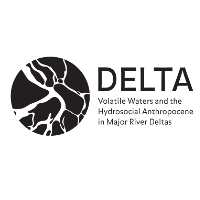We are happy to announce our forthcoming research methods workshop. After a few months of our ethnographic fieldwork in four river deltas around he world, we want to reconvene and take stock of what we have been doing, what worked well and what needs improvement. We will discuss our experiences and plans with researchers who have been working in related fields, and whose background is in related disciplines.
Workshop venue: Tagungs- und Gästehaus St Georg, Rolandstraße 61, 50677 Köln
Workshop times: January 17, 2018, 1pm to January 19, 2018, 1pm
Registration: please send us an email by January 12, 2018, if you are interested in participating; please note that places are limited, and available spots will be allocated according to when we receive your email
About the workshop:
Adjustments and fine-tuning of ethnographic methods are often necessary to better understand contemporary lifeworlds and produce insights that contribute to current debates. Our workshop will explore what methods we might need to study the social, material, cultural and economic volatilities that characterize human lives in the hydrosocial Anthropocene. If change and uncertainty have replaced stability and continuity as the core principles of social life, what ethnographic tools may serve to capture and understand these worlds?
‘Anthropocene’ here refers to the realization that human activities may have global geologic impacts comparable to plate tectonics and solar radiation. ‘Hydrosocial’ points to the recognition that social and hydrologic relations often closely correspond, in that water flows may mirror political and economic power, and human subjectivities may be shaped by the qualities, quantities and timings of water.
Our workshop aims at establishing a conversation about the potentials and limits of old and new field methods in the hydrosocial Anthropocene, and we will discuss the practical and ethical aspects of their application. This may help us to gear our attention to the questions that matter to our interlocutors in the field, and to produce knowledge that speaks to current debates in academia and public discourse.
For further information and a preliminary programme, please click here.
